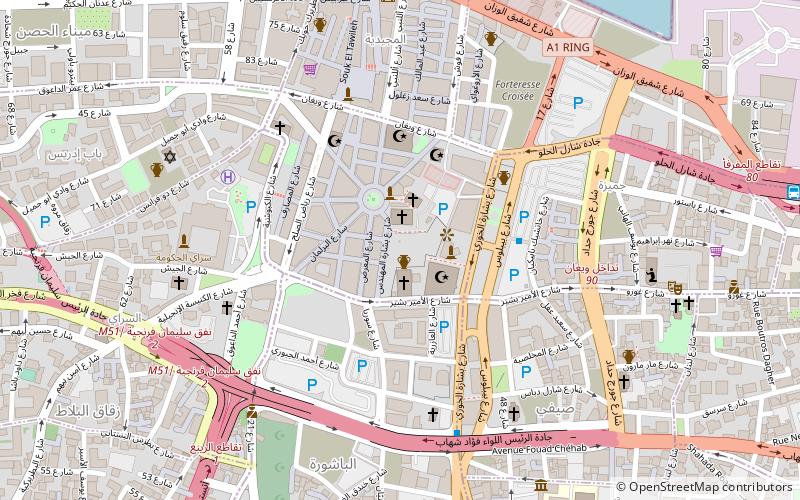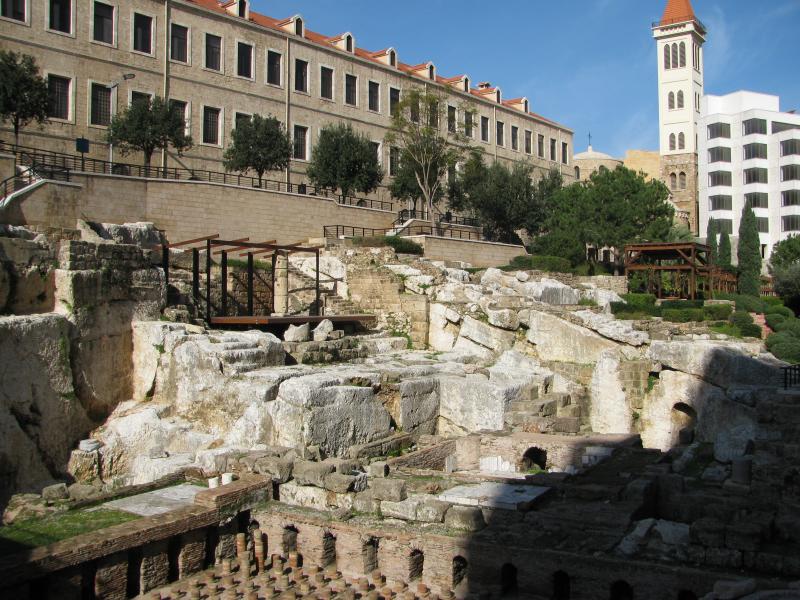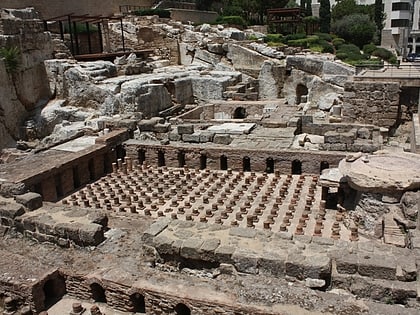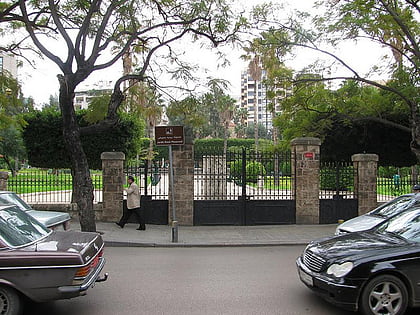Berytus, Beirut


Facts and practical information
Berytus, now nestled in the heart of modern-day Beirut, Lebanon, stands as a testament to the city's rich and ancient history. This historical site was once a prominent Roman city, known for its law school that attracted students from across the empire. Founded in the middle of the 1st century B.C., Berytus became a significant intellectual center, particularly during the 3rd and 4th centuries A.D.
The remnants of Berytus speak of its former glory and cultural significance. The city was renowned for its theaters, colonnaded streets, baths, and a forum that once buzzed with the activities of daily Roman life. Even today, visitors can witness the traces of its grandeur through the excavated ruins spread across the city, including the Roman Baths and various archaeological findings displayed in the Beirut National Museum.
One of the most remarkable legacies of Berytus is its contribution to Roman law. The law school of Berytus was one of the most prestigious of the era, producing eminent jurists who played a crucial role in the development of Roman jurisprudence. The school's influence extended far beyond the city's boundaries, shaping legal thought throughout the empire.
Despite the ravages of time and multiple conflicts that have swept through the region, the essence of Berytus endures in Beirut's cultural and historical landscape. The site attracts scholars, history enthusiasts, and tourists alike, who come to explore the ancient roots of this vibrant Mediterranean metropolis.
Beirut
Berytus – popular in the area (distance from the attraction)
Nearby attractions include: Beirut Souks, Saint George Greek Orthodox Cathedral, Mohammad Al-Amin Mosque, St. George Maronite Cathedral.
Frequently Asked Questions (FAQ)
Which popular attractions are close to Berytus?
How to get to Berytus by public transport?
Bus
- Charles Hélou Bus Station (13 min walk)
- Syria taxi (14 min walk)











